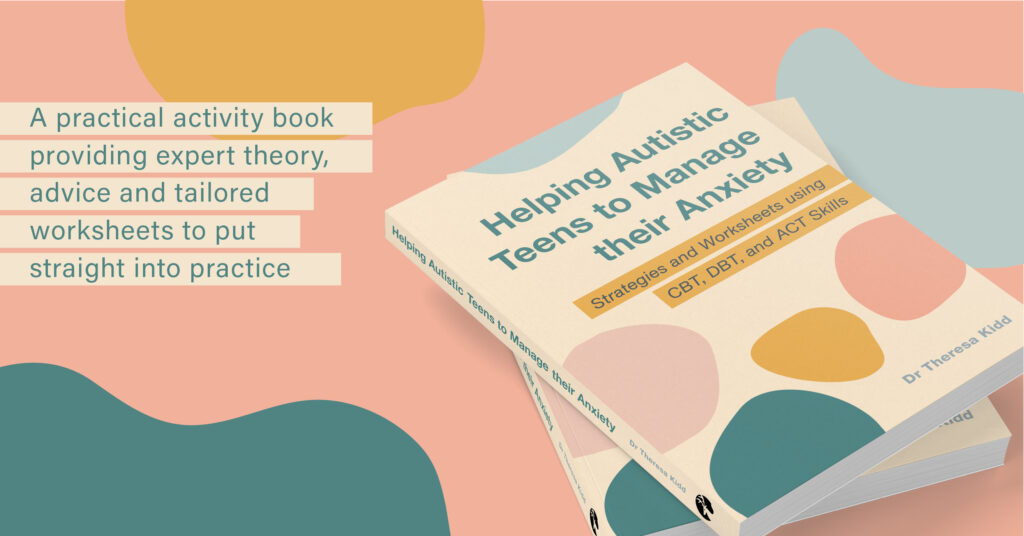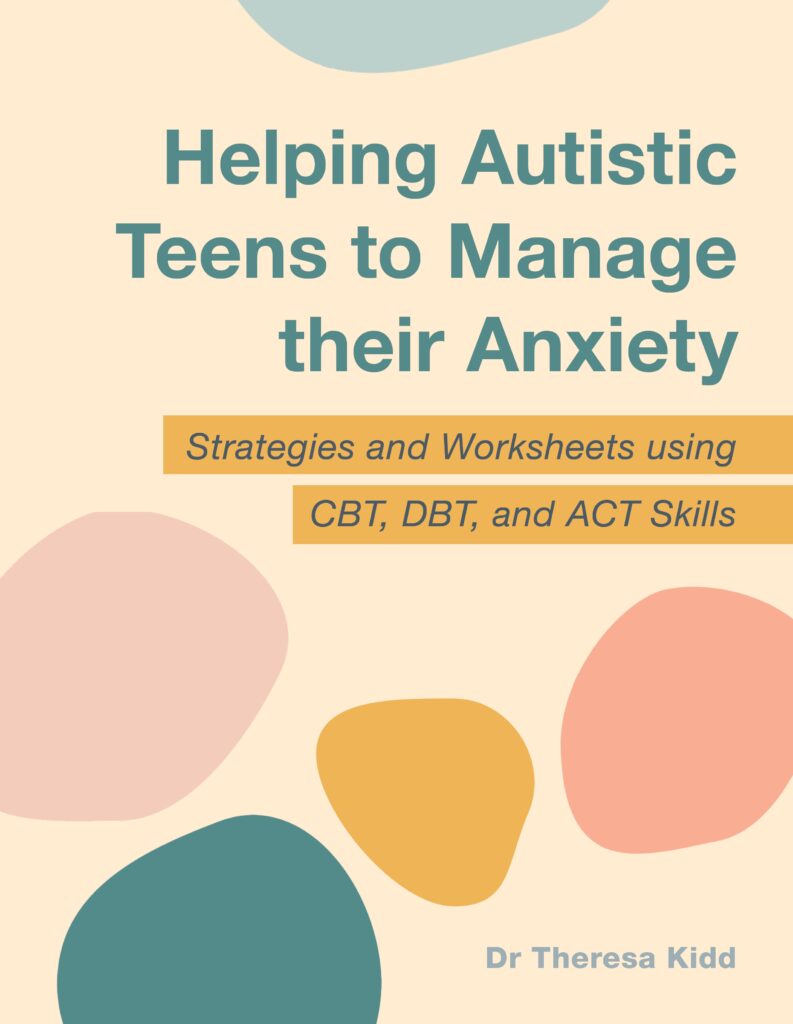Drawing on the author’s extensive clinical and research experience in the fields of anxiety and autism new book Helping Autistic Teens to Manage their Anxiety presents practical strategies purposefully developed for parents, therapists and teachers working with autistic adolescents experiencing anxiety. In addition, it features chapters dedicated to assisting parents in supporting their anxious child.

I first became aware of the relationship between anxiety and autism after seeing this co-occurrence within my own family. The anxiety struggle was real, and often it substantially interfered with engagement in everyday activities, social interactions, and maintaining relationships. Unfortunately, for far too long medical professionals tended to regard behaviours resulting from anxiety symptoms as characteristics of autism. Clinically, neglecting such symptoms has proven to be detrimental for many autistic adolescents and young adults as they are often refused public mental health services due to their autism (‘disability’) diagnosis. I cannot count the number of families that have informed me that they have not been able to access mainstream mental healthcare services due to their adolescent having an Autism diagnosis. Missing out on targeted treatment and support is partly due to a lack of autism recognition, understanding, and expertise amongst these services, as well as a lack of coordination and communication across sectors. It seems to be assumed that if a person has a disability, then their needs will be supported by the disability sector even though the disability sector will often not resource mental health support and treatment.
Fortunately, over the past decade or more, I have seen a substantial growth in the way that autistic individuals, their parents, and supporting professionals understand and recognise the co-occurrence of anxiety disorders and Autism. Most books and research in this area have focused on children and early adolescents. Therefore, the aim of my work over the years has been to fill this gap by discovering ways to effectively support autistic adolescents and young adults with anxiety management. I was not content with just understanding how anxiety presents for autistic adolescents, but I was passionate, and still am, about finding out how we can help adolescents to reduce it. Since completing my PhD in this area, both parents, educators and health professionals ask me for practical strategies on how they can engage their young autistic adolescents in therapeutic work. In addition, autistic adolescents have frequently expressed that therapies for non-autistics have not helped them to reduce their anxiety symptoms. They have requested tools and strategies developed to suit their neurobiology. The focus of my book is to assist parents, caregivers, and professionals to better understand anxiety as it presents in Autism, and to provide practical strategies developed or adapted to purposely suit autistic adolescents and young adults in successfully managing their anxiety symptoms.
During adolescence, anxiety may be exacerbated by a variety of triggers/ stressors. Some of these include:
Social and Language-related Anxiety Triggers
- Relationships become more conversational, intimate, and complex
- Social interactions can be confusing
- Bullying including cyberbullying
- Communication difficulties (real life interaction, online, texting etc)
- Feeling attraction towards others
- May lack understanding of self and ability to self-reflect
- May struggle to fit in, imitate peers and mask to project a certain image to others
- May lack self-confidence
Education and Employment Demand Triggers
- Performance pressure and high expectations in high school and tertiary education
- Tests and exams
- Increase in the amount of academic work
- Worry about the future and ‘adulting’
- Lacking independence
- Less employment exposure than peers
- Transition from high school to tertiary education, employment and less structured daily living.
- Changes in routine
Physical Changes/ Triggers
- Hormonal and physical changes
- Mood fluctuations
- Need for more sleep/ difficulty waking early
- Body dysphoria
- Gender diversity

The culmination of anxiety triggers and various developmental changes during adolescence means that anxiety can be more elevated and present differently than during childhood. Undoubtedly, parents often report that they are struggling to cope with (a) seeing their adolescent extremely distressed or avoidant, and (b) balancing how to support their adolescent and simultaneously care for themselves/ the rest of their family. I have devoted a chapter in my book to families, in particular: (a) how parents maintain connection with their adolescent or young adult, (b) how they can model coping strategies so that they are assisting their adolescent with anxiety, and (c) how parents can gain support and care for themselves.
Much of the work that I do is providing ways that parents and professionals can differently support their autistic and anxious adolescents. I have drawn upon evidence-based treatments, autism research, anecdotal clinical observations, and case studies, to provide practical strategies to help you to work with and assist the autistic and anxious teens or young adults in your life. In addition, this book includes:
- Three chapters devoted to different treatment modalities (CBT, ACT, DBT) that can assist with anxiety reduction and management.
- Teen and neurodivergent friendly worksheets that can be easily used in sessions, school, or at home to work on understanding and reducing anxiety.
- A chapter on Pathological Demand Avoidance (PDA) – what this is and how we can best support young people with a PDA profile.
- A chapter dedicated to parenting an autistic and anxious teen.
- Information on School Refusal (school anxiety) and a map of how to assist our young people to engage educationally.
Helping Autistic Teens to Manage their Anxiety is available now at JKP.com or wherever you buy your books.
If you would like to read more articles like this and get the latest news and offers on our books about neurodiversity, why not join our mailing list? You may also be interested in our Facebook page or Twitter page.